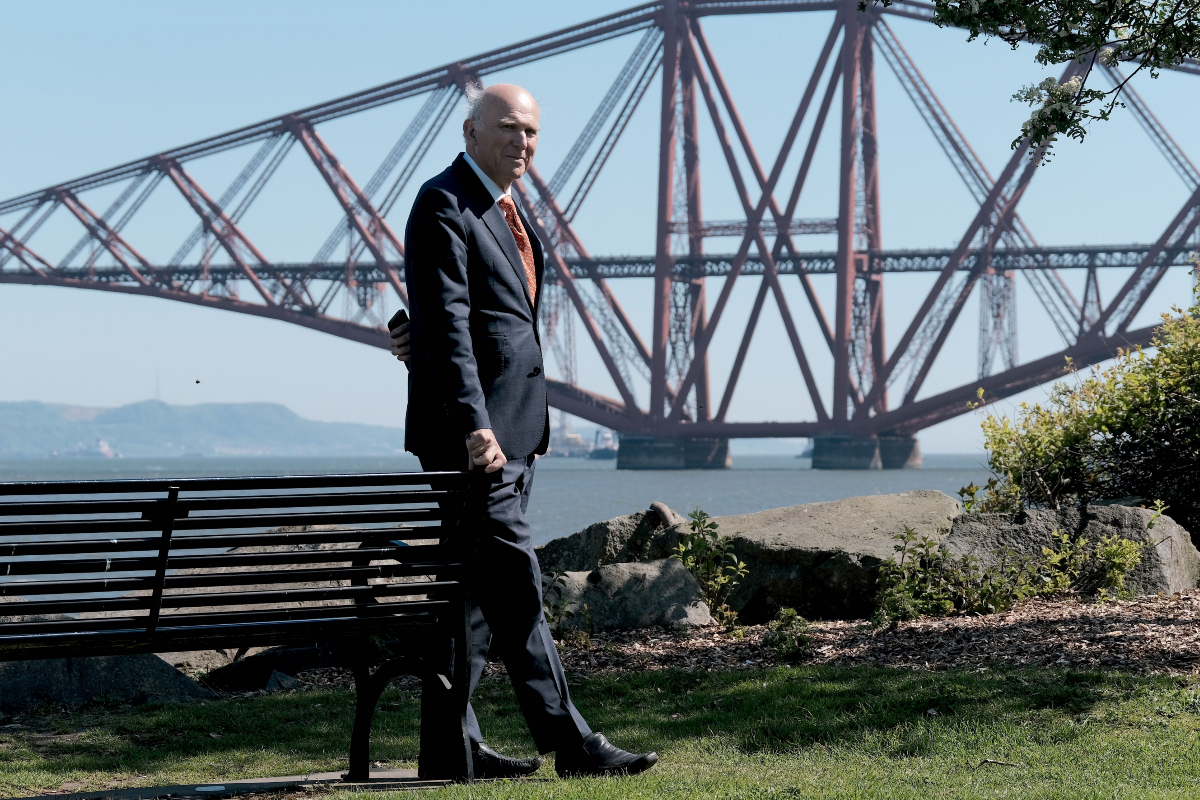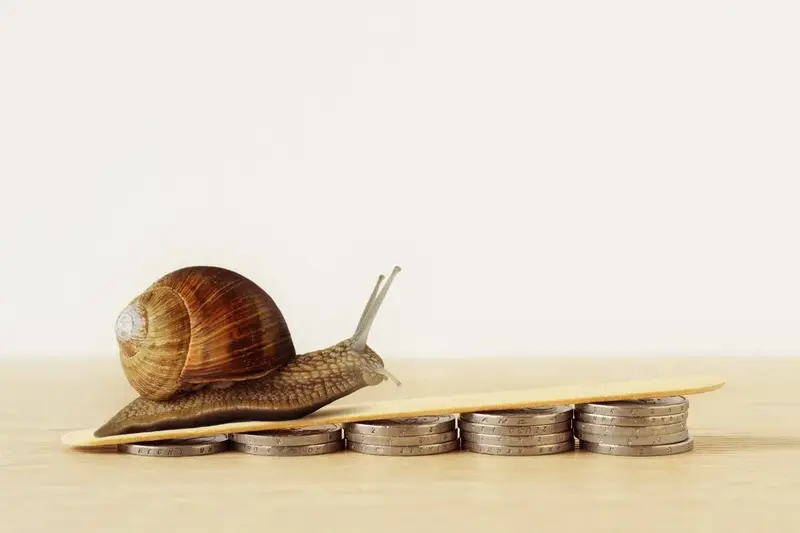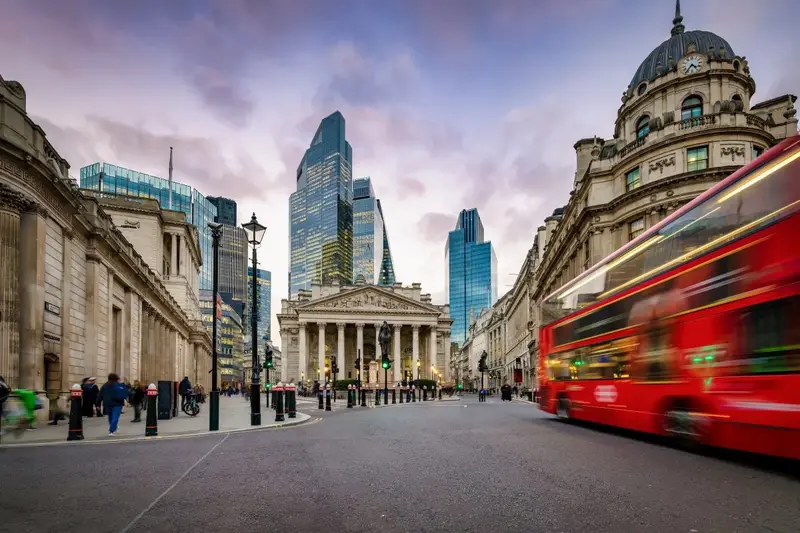Dear visitor,
You're reading 1 of your 3 free news articles this quarter
Register with us for free to get unlimited news, dedicated newsletters, and access to 5 exclusive Premium articles designed to help you stay in the know.
Join the UK's leading credit and lending community in less than 60 seconds.
Navigating the storm: Vince Cable on the economy and UK politics
A keynote speaker who will provide a unique insight into the corporate world and the political arena, former Business Secretary, Sir Vince Cable, spoke with Credit Strategy’s Michal Lodej, dissecting the intricacies of global economic crises to navigating the ever-evolving landscape of British politics.

Group Editor of Shard Financial Media, which encompasses the Credit Strategy, Reward Strategy, TRI and FSE brands.
 Michal Lodej
Michal LodejGroup Editor of Shard Financial Media, which encompasses the Credit Strategy, Reward Strategy, TRI and FSE brands.
From a successful career as the chief economist at Shell to being a cabinet minister and author of a Sunday Times best seller, Sir Vince Cable’s journey is fuelled by a long-standing desire for change. In this exclusive interview, we delve into the motivations and reflections of a seasoned economist and former Secretary of State.
Michal Lodej: After a successful career which included being chief economist at Shell. What drew you to becoming an MP?
Sir Vince Cable: There were two things which drew me into politics, the first was when I was a teenager and I started arguing with my dad, who was a right-wing Tory, and I developed what you might call a centre-left approach to politics.
Then while at University I became heavily involved in the debating union, of which I became president, on the back of my enjoyment for political debating. Later on, in Glasgow I got involved in a serious way when I contested and won election to the city council in 1971.
But ultimately, I think it was inspired by conditions in the city, unemployment, housing and my wider political ideals.
I did stand for election for quite a long time before I was finally elected to Parliament, my win in Twickenham in 1997 was my fifth attempt. I ran for the first time 30 years earlier in Glasgow, and then a couple of times in York and once before in Twickenham; so, I always had a political leaning and I managed to keep it going alongside family and career.
Then when the opportunity arose and Twickenham became winnable in 1997, I gave it one last try.
ML: Are there any comparisons of the global economy in the 2008 to the challenges we are seeing today – what are the biggest differences or similarities?
VC: I actually wrote a book about the 2008 crisis called The Storm, which became a best seller, it was probably the first book on trying to explain the root causes of the banking crisis.
Today, the collapse of the banking system is one of the least likely outcomes from the current economic climate, so I don’t think there are any strong parallels to draw. For one thing, we don’t have a massively inflated asset market - except possibly to a degree in housing – we do have a lot of problems but major instability in the financial sector isn’t one of them.
ML: Are we in the middle of an economic malaise or do you see recovery coming this year?
VC: I wouldn’t predict a major global recession but there isn’t very much sign of growth either. We’ve just been through a very difficult period with the pandemic and now in addition to that we’re feeling the consequences of war in Europe and the Middle East.
In the short and medium term, I wouldn’t have thought we are heading towards recovery any time soon, especially considering there are big threats coming up that we’ve not had before in the post war era - such as major geopolitical systems being disrupted.
What I mean by this is, there’s a real danger of Trump returning to power and bringing back trade warfare – just think of the protectionism in the 1930s and how that was a major source of conflict and economic trouble at that time.
ML: During your time in the role of Business Secretary you would have learnt first-hand the difficulties which businesses were facing. How do you think those challenges have changed and evolved today?
VC: The difference is that in 2010 there was a credit famine. One of the major problems confronting businesses, particularly SMEs, was the lack of access to credit markets. Quite a lot of my time in office was spent trying to address that problem which led to the establishment of the British Business Bank.
But something which is in common with that time is the short-termism we have in British financial institutions – this continues to be a major concern. When I was in government, it led us to having an industrial strategy in the Coalition and in my view we are in need for a new government to restore that.
We have longstanding problems such as a lack of skills and we need to be upgrading the importance of apprenticeships. We made a good start on that in the coalition, but it was then undermined by the apprenticeship levy and ill-considered policies more recently.
The other big difference of course is we’ve now got Brexit and in the short-term there’s not a great deal we can do about it, but some people do acknowledge it puts us in a somewhat more difficult position.
Ultimately, we haven’t really succeeded in creating new sources of credit and the British Business Bank was an attempt to act as a catalyst for new sources of capital but we’re still stuck with the same small number of banks which control the supply of credit.
I mean Virgin Bank is currently being scooped up by Nationwide, and quite a lot of the online financial start-ups, which appeared ten years ago have since ran into trouble, so it’s very difficult to see where we are making progress.
ML: You were in the cabinet during the creation of the FCA, what was it like being around the cabinet table at that time and how do you reflect on those decisions made.
VC: Well issues around financial markets weren’t really discussed at cabinet level, with the exception of the really big reforms that we initiated.
Thinking particularly of the FCA, and the work leading to ring-fencing banking activities to protect consumers, that was all very much George Osborne and myself so it didn’t really require kind of cabinet buy-in, it was done in combination with the two parties in the coalition on the difficult technical issues.
So, lots of those financial reforms were taken by the treasury in conjunction with the key Lib Dems such as me and Danny Alexander.
ML: When will the election be?
VC: Well, I was expecting it to be in May, but I think after the Spring budget the prospect of is are receding – I’m now thinking about November is the most likely now.
ML: What do you make of polling - how much do you trust it?
VC: Well, you can trust it if you recognise that there is quite a wide margin of error. Most of the leading polling agencies you know, Ipsos Mori and YouGov etc, they’re honest and professional and to that extent they are trustworthy – but of course they do have a margin of error, and there are always a large numbers of ‘don’t knows’ too.
ML: So, what do you predict for the election?
VC: Well, my view isn’t typical of the common consensus - most people seem assume there will be a Labour landslide, but I think that unlikely. I think it’s more likely you will get a Labour government, probably with quite a modest majority.
I don’t think you’ll see another coalition, but you may see a working arrangement, if the Labour Government doesn’t have a big enough majority, they will need to have an ‘understanding’ with other parties - probably mine - but I don’t think the Lib Dems would go into another coalition.
ML: Lots of focus on Labour/Conservatives in the media but how do you think the Lib Dems and the SNP will perform?
VC: I think the Lib Dems have a very specific target which is trying to get 30 to 35 seats and they’re concentrating all their efforts on putting resources into those marginal areas.
I think they have a realistic chance of doing that, but the key thing to watch out for in the next election is whether the Lib Dems get more seats than the Scottish Nationalists, because if the Scottish Nationalists lose 20 odd seats and the Lib Dems gain 20 odd seats it could really change things.
Where they finish up matters enormously because if you are the third party in Parliament – as opposed to the fourth party - it makes a great deal of difference in terms of what kind of speaking opportunities you can command and the kind of publicity you get externally.
ML: What do you think of Rachel Reeves as a Chancellor? Labour have been cosying up to the city in recent months, what do you make of that?
VC: She is extremely capable woman and I think she would be very good at the job. The only problem I have is the commitment Labour has made to no increase in taxation, this binds them into the most dreadful box.
Current public spending levels are just not sustainable; they can’t be cut any further and the government’s public spending objective just can’t be realised.
The next government will have to increase rates of tax, and will have to introduce higher rates of tax as well as the higher share of tax in the national income, but Labour has boxed themselves into not delivering that and frankly it’s impossible – they have put themselves in a very, very difficult position.
ML: Are there any other incoming MPs that you are excited to see what they can do, or worried about what they will do?
VC: Well, I don’t know them personally, but it would be interesting to see how many of the new Tories are basically UKIP people, because I think there is a potential for what you might call a reverse takeover of the Tory party by UKIP, now Reform, depending on the composition of the new members.
ML: What excites you about coming to at Credit Week?
VC: I enjoy getting together again with the practitioners who are making business happen. The temptation with being a retired politician like me is to just look on from the outside as a commentator but engaging with people at the front end is very important.
Don’t miss hearing Sir Vince Cable’s expert analysis of the economic environment and political scene at this year’s Credit Week - tickets available here.
Stay up-to-date with the latest articles from the Credit Strategy team
READ NEXT
Bank warns on slower growth
UK CEOs adapt investment strategies in response to geopolitical and trade policy shifts
Rates on hold amid uncertainty
Get the latest industry news




